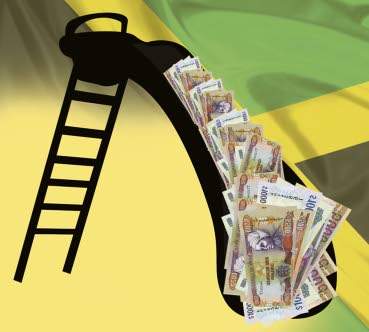Every time there is a sharp decline of the exchange rate, it becomes a major topic of discussion, and rightly so. The fact is that the exchange rate is very important to the consumer, as it does have an impact on prices.
If the J$ depreciates against the US$, then because most of our imports come out of the US, it inevitably affects the average man’s purchasing power as his earnings are denominated in J$.
This is because most of the things that we consume are either directly imported from the US or have an import content that ultimately affects the costs and prices of the finished product/services.
Even when it is a service that is provided, the cost of providing that service is affected by rising oil prices (electricity bill and travel cost), stationery imports, furniture imports, etc. Even when you are taking a vacation in Jamaica, and you book a hotel, the price is quoted in US$, which is understandable.
One can argue that the exchange rate does not impact, in any significant way, the basket of goods that affects inflation, as much of the basket consists of locally produced foods and other things that are not directly impacted by the exchange rate. This is true, but the argument assumes that as people improve their standards of living they will want to continue consuming only what is in that basket of goods.
The fact is that if we think that people in improving their lives want to consume things that improve their standards of living like televisions and other appliances, brand-name clothing, imported foods, etc, then we also have to assume that their cost of living will be affected by the exchange rate.
So, it is therefore inconsistent to talk about improved standards of living and a lower exchange rate, as when the economy improves (as we have been seeing), unemployment falls, and average wage levels increase, then naturally people will demand more luxury goods, which we do not produce.
http://www.jamaicaobserver.com/business-report/the-real-problem-with-the-exchange-rate_141685




Leave A Comment